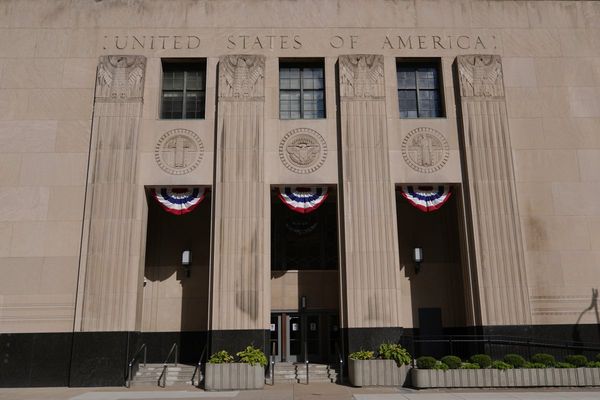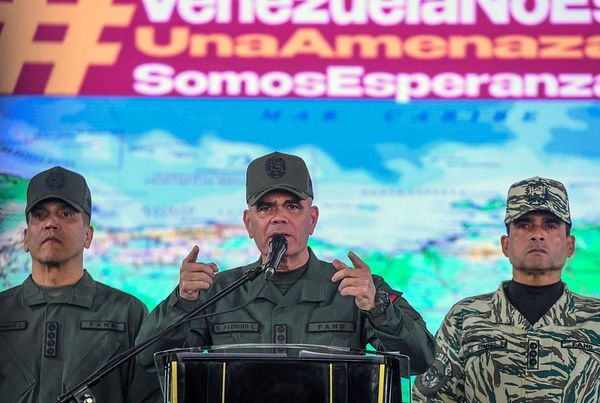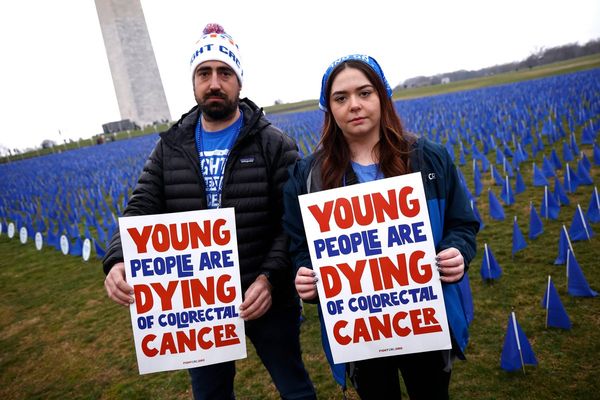The White House on Tuesday unveiled a key feature of President Donald Trump's bold but controversial plan to slash U.S. drug prices. It even has a snappy, if quirky, name: TrumpRx.
That's what the Trump Administration is calling a new direct-to-consumer website for Americans to buy prescription medicines. The White House also struck a deal with Pfizer, to provide every state Medicaid program with lower-priced drugs. Pfizer said it will participate in TrumpRx, selling a "large majority" of its primary care treatments and some specialty products at a 50% to 85% discount.
But whether patients actually benefit remains to be seen. One analyst noted Pfizer doesn't have a large exposure to Medicaid. Another expects drugmakers to offer cash-pay options that don't markedly differ from the net price they would have otherwise received. It's also unclear how insurance will interact with the direct-to-consumer platform. In some cases, the cash price might be more than co-pays.
The news broke as Trump tries to shore up his strategy to lower U.S. drug prices under the Most Favored Nation executive order. Pfizer, which emerged as a key player in the Trump plan, pledged to launch new drugs in the U.S. at pricing parity with other key developed markets.
TrumpRx And Most Favored Nation Plan
The TrumpRx announcements are among the first proactive steps to lower U.S. drug prices under Trump's Most Favored Nation executive order. At the end of July, the administration sent letters to 17 drugmakers, demanding they voluntarily reduce the prices of drugs in the U.S. to match what patients in other similarly wealthy nations pay. The deadline for them to respond was Monday.
Drugmakers have raised prices abroad. Eli Lilly hiked the price of its diabetes and obesity drug Mounjaro by 170% in the U.K. Bristol Myers Squibb said it will launch schizophrenia drug Cobenfy in the U.K. at the same price it charges in the U.S. AbbVie also said it would sell Elahere, a cancer treatment, at the same price in the U.K. as it goes for stateside.
But Pfizer is the first — and only so far — to actively lower U.S. drug prices. The administration teased that others will be coming.
So, what happens now?
"In a lot of ways, we don't know where we are," Benjamin Layton, a lead product consultant with analytics firm Clarivate, told Investor's Business Daily. "It's really unclear what the enforcement mechanism could be."
What Is Most Favored Nation?
Americans pay nearly three times what patients do in other countries for prescription medications. When Trump announced the drug pricing plan, also called MFN, he argued that other countries are getting a free ride while American patients shoulder the cost of drug innovation alone.
"A collaborative effort toward achieving global pricing parity would be the most effective path for companies, the government and American patients," Trump said in his letter to drugmakers. "But if you refuse to step up, we will deploy every tool in our arsenal to protect American families from continued abusive drug pricing practices."
The problem is that the executive order doesn't have any teeth, experts say. There are no penalties listed for drugmakers who don't comply.
Deal 'Yields Relief' — For Drugmakers
Pfizer's voluntary agreement "yields relief," for drugmakers, Leerink Partners analyst David Risinger said in a report. William Blair analyst Matt Phipps suggested other drugmakers could expand their cash-pay options or launch drugs through TrumpRx.
But it's less clear whether patients will be better off.
Companies will likely "offer therapies for cash paying patients at meaningful discounts to the list prices that likely do not differ much from the current net price," Phipps said.
In return for striking the deal, Pfizer will be exempt from tariffs for the next three years, assuming it continues investing in U.S. manufacturing efforts.
The Medicaid part, for Pfizer, though is immaterial. Medicaid represents less than 5% of U.S. sales for the drug giant, Leerink's Risinger said. But "certain other drug companies could face greater Medicaid risk if they sign a similar agreement," he added.
Direct-To-Consumer Approach
RBC Capital Markets analyst Brian Abrahams was upbeat, saying Pfizer's approach and the new TrumpRx website helps drug companies avoid the worst-possible outcome.
"We believe that given the contours of this framework are clearer, it could offer other biopharma companies greater predictability and make it easier for them to navigate and comply with the administration's drug pricing initiatives moving forward while overall still being manageable to the industry's top or bottom line," he said in a client note.
Mark Cuban, the billionaire behind Cost Plus Drugs, said in a post on X that the muted stock reaction suggests investors don't expect TrumpRx to have much of an impact on the health care system. Cost Plus Drugs circumvents middlemen known as pharmacy benefit managers, or PBMs.
More Cash-Pay Options
Other drugmakers could launch direct-to-consumer websites to avoid insurance and PBMs, says Mark Miller. Miller leads the health care team at Arnold Ventures, a philanthropic organization that funds research in areas like criminal justice, higher education, health and infrastructure.
Lilly and Novo Nordisk have adopted this practice for their wildly popular weight-loss drugs Zepbound and Wegovy. Though they carry list prices above $1,000 a month — the price before insurance discounts and rebates kick in — patients paying cash can get the meds for $499 a month through LillyDirect and NovoCare Pharmacy.
"The thing I feel like I'm hearing is, 'Not so much I'm lowering the price in the United States,' as much as I'm hearing, 'I'm going to put this drug on direct-to-consumer at a significant discount,'" Miller told Investor's Business Daily. "That's generally a cash transaction. ... So, will that qualify as lowering the price of the drug in the mind of the MFN? I don't know."
What Is The Lowest Price?
The Most Favored Nation approach faces another problem: The negotiations among drugmakers, countries, the insurance companies and PBMs are trade secrets.
It's also not clear what price the Trump administration will use to determine the lowest price. Is that the lowest list price? Or the lowest price any patient pays? And how will the administration force the stakeholders to give an honest answer to any of these questions?
"There's a list price on all of this," Miller said. "But the list price in Germany is $100, but everybody has negotiated a price that's to $50. Do we know that?"
Other Countries In Play
It's also a no-brainer that other countries aren't exactly lining up to pay higher drug prices under the Most Favored Nation order.
But they may have little choice, says Clarivate's Layton. In many cases, drugmakers can't afford to lose the sizable U.S. market in the hopes of appeasing smaller countries abroad. Take Wegovy, the anti-obesity medication from Novo Nordisk. In the U.S., it has a list price of $1,349 per month. But, in France, the list price is $267, he said.
If the total potential American market for Wegovy paid that $267 price tag, Novo Nordisk would lose more in revenue than if they lost the total potential market for France, Germany, Italy, and Spain combined.
"My guess is a lot of these countries will say, 'Let's increase the list price, but then negotiate bigger rebates,'" Layton said.
Research And Development Hit
Drugmakers often claim cutting into drug prices will have a direct impact on innovation.
John Stanford, executive director of Incubate, says the argument holds some water. Incubate is a nonprofit and national organization of venture capital firms focused on early-stage life sciences companies. He says lower U.S. drug prices mean companies will have to make tough decisions about where to focus their research and development dollars.
"Is it true that the rest of the world is free-riding on American innovation? 100%," he said in an interview. "But if we start paying (lower) prices, there just isn't enough left in the system to develop any new drugs. Net-net patients are worse off because they aren't going to realize the lower prices. Only the government will."
There's a saying in cooking: You have to break a lot of eggs to make an omelet. The same is true for making drugs. It takes billions of dollars to develop a successful medicine. Many efforts fail in testing. So, when a company prices its winning drug, it's trying to recoup the money it spent to create that drug — and the costs tied to its failed experiments.
Fewer Big Swings
If the company isn't going to recoup as much, it will take fewer big swings, scientifically speaking.
"Those are the kinds of big bets that aren't awarded by price control," he said.
Miller, of Arnold Ventures, says it's not quite that simple. Drugmakers fiercely protect the patents on their biggest drugs. Many of those with longer-lasting patents have well recouped the cost it took to develop those drugs. For those companies, it's time to move on to the next innovation, he says.
"But a deep, deep reduction, if it were truly an MFN price, that could affect innovation in this country," he said.
Follow Allison Gatlin on X/Twitter at @AGatlin_IBD.







